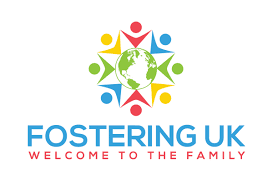Foster Children Friendship
The children who lived in foster care need friends to grow their communication, sharing, empathy, problem-solving, and creative abilities. Growing up and developing emotionally and socially dependent on making good friends. Children's self-esteem and confidence are boosted through friendships with foster carers or other people. This can give children a feeling of identity and belonging, which can strengthen them.
Yet occasionally, making and keeping friends may be challenging for kids and teenagers, especially those in foster care. Many factors, such as an unstable upbringing or personality traits, a lack of shared interests, or inadequate social skills, might make it challenging. Your children's early life experiences may have an effect on their capacity to create deep relationships with their peers in a number of different ways.
There are too many things that can be done easily to support a foster child's social and emotional development, enhancing their capacity to establish and maintain connections with others. Learn about their social inclinations to start. On the first day of a foster home or foster care, they could feel uneasy about talking to new people or new kids. They may want to talk to the other kids but are hesitant out of concern for their treatment.
How to treat a foster child
As soon as you know if a foster child is happy or sad, you can determine how they are feeling and come up with a plan to help them get the social skills they need to make lasting connections. Educating the child to have enjoyable relationships with others has multiple advantages. You may wish to start with the basics, like teaching kids how to greet people in a polite way and how to answer inquiries. Make sure kids know the importance of respecting other individuals' privacy and prove to them how much physical contact is acceptable and expected in everyday interaction. Spend some time with them and instruct them how to take part in conversations so that they don't take over when they're with others. Keep in mind that the child is noticing you see if you are providing any signals, so strive to act as an example of how to resolve conflicts and work together.
Your youngster can practise these scenarios through role play. First, set an example for your child by acting appropriately, and then let them practise on you. Inform them as soon as possible, in a good and constructive manner, on how they are doing, and then repeat the process.
Make sure they interact with more children in their age group.
It's likely that your youngster needs friends because they haven't had enough chances to make them. Making new buddies by taking part in a variety of projects with children their age who have similar interests can be a great way to meet people. Giving your child more opportunities to interact with kids with whom they'd like to connect might be advantageous.
For your youngster, look for chances to join in additional or academic activities. Be attentive to the child's mood and energy level. You don't want to overbook shy kids who need time alone to recover.
Give them time and space.
While making friends is a very important and beneficial part of growing up as a foster child, there are many other ways for foster kids will develop their social skills. Stress by foster parents or other people has an instant and direct impact on foster kids. Nothing that doesn't seem right or comfortable should be pushed. Giving kids the tools they need to start and build new relationships is a great way to help them, but don't forget to allow them the time and room they require to grow on their own terms.
At UK Fostering, we offer all of our carers a top-notch training curriculum and frequent supervision visits to interact with carers and foster children.




Comments
Post a Comment